Written by: Erika Castro-Morrison
Medically Reviewed by: Dr. Paul Spagnuolo
Key Takeaways
- A meal replacement shake is a convenient and nutritionally balanced beverage designed to serve as a substitute for a traditional meal.
- Protein shakes are beverages that contain a concentrated amount of protein, typically derived from sources like whey, casein, or plant-based proteins such as soy, pea, or hemp. Protein shakes are widely known for their ability to promote muscle growth and aid in post-workout recovery.
- Meal Replacement shakes are perfect for individuals looking to lose weight and people who are always on the go.
- Protein Shakes are perfect for people looking to build muscles and is not a perfect substitute for dinner as it lacks essential macronutrients (carbohydrates and fats) and micronutrients (vitamins and minerals) for complete nutrition.
- Metavo offers Advanced Meal Replacement Shake, a nutrient dense powder designed to replace a meal and it contains up to 20 grams of complete plant based protein, 26 vitamins and minerals, 3g gut-friendly prebiotic fiber, and is adaptable to weight loss, muscle building, maintenance, and even weight gain.
In today's fast-paced world, finding the time to prepare healthy and balanced meals can be a challenge. This is where meal replacement shakes and protein shakes come into play. These popular dietary supplements are designed to provide essential nutrients and support specific health goals. Understanding the difference between meal replacements and protein shakes is crucial for making informed choices about our nutrition.
In this blog post, we will explore the health benefits of different shakes and highlight the importance of proper nutrition and supplementation in maintaining a healthy diet.
Can a protein shake replace a meal? Whether you are looking to lose weight, build muscle, or simply improve your overall nutrition, read on to discover which shake is right for you.
What is a meal replacement shake?
A meal replacement shake is a convenient and nutritionally balanced beverage designed to serve as a substitute for a traditional meal. Typically, these shakes contain a precise blend of macronutrients, vitamins, and minerals to provide a well-rounded meal in liquid form. The ingredients often include protein sources (such as whey, casein, or plant-based proteins), carbohydrates, healthy fats, fiber, and essential vitamins and minerals.
These shakes offer several benefits, particularly for individuals aiming for weight loss or seeking on-the-go meal options. By providing a controlled portion of nutrients, meal replacement shakes can help manage calorie intake more precisely and promote weight loss. Additionally, their convenience makes them an ideal choice for busy individuals who may not have the time to prepare a full meal.
Several popular meal replacement shake brands have gained recognition for their quality and effectiveness including Metavo Advanced Meal Replacement Shakes in Vanilla and Chocolate. These products make it easier for people to get the nutrition they need, even when they're busy. They are convenient and portable for maintaining a balanced diet.
What is a protein shake?
A protein shake is a beverage that contains a concentrated amount of protein, typically derived from sources like whey, casein, or plant-based proteins such as soy, pea, or hemp. Protein shakes have less extra nutrients than meal replacement shakes. They have small amounts of carbs, fats, vitamins, and minerals to help muscles grow and recover.
Protein shakes are widely known for their ability to promote muscle growth and aid in post-workout recovery. The high protein content helps repair and rebuild muscles after intense exercise, making it an ideal supplement for athletes and fitness enthusiasts. Additionally, protein shakes can contribute to increased satiety, helping to curb cravings and support weight management.
Protein drinks come in various forms, each offering its own benefits. Whey protein, derived from milk, is a popular choice due to its complete amino acid profile and high bioavailability. Plant-based options like soy, pea, and hemp proteins provide suitable alternatives for those following vegetarian or vegan diets. These alternative protein supplements are commonly allergen-free and contain additional nutrients like fiber and antioxidants.
Well-known protein shake brands include Optimum Nutrition, MuscleTech, Dymatize, and Vega. These brands offer a wide range of flavors, formulations, and protein sources to cater to different preferences and dietary needs.
Protein Shake vs. Meal Replacement Shake
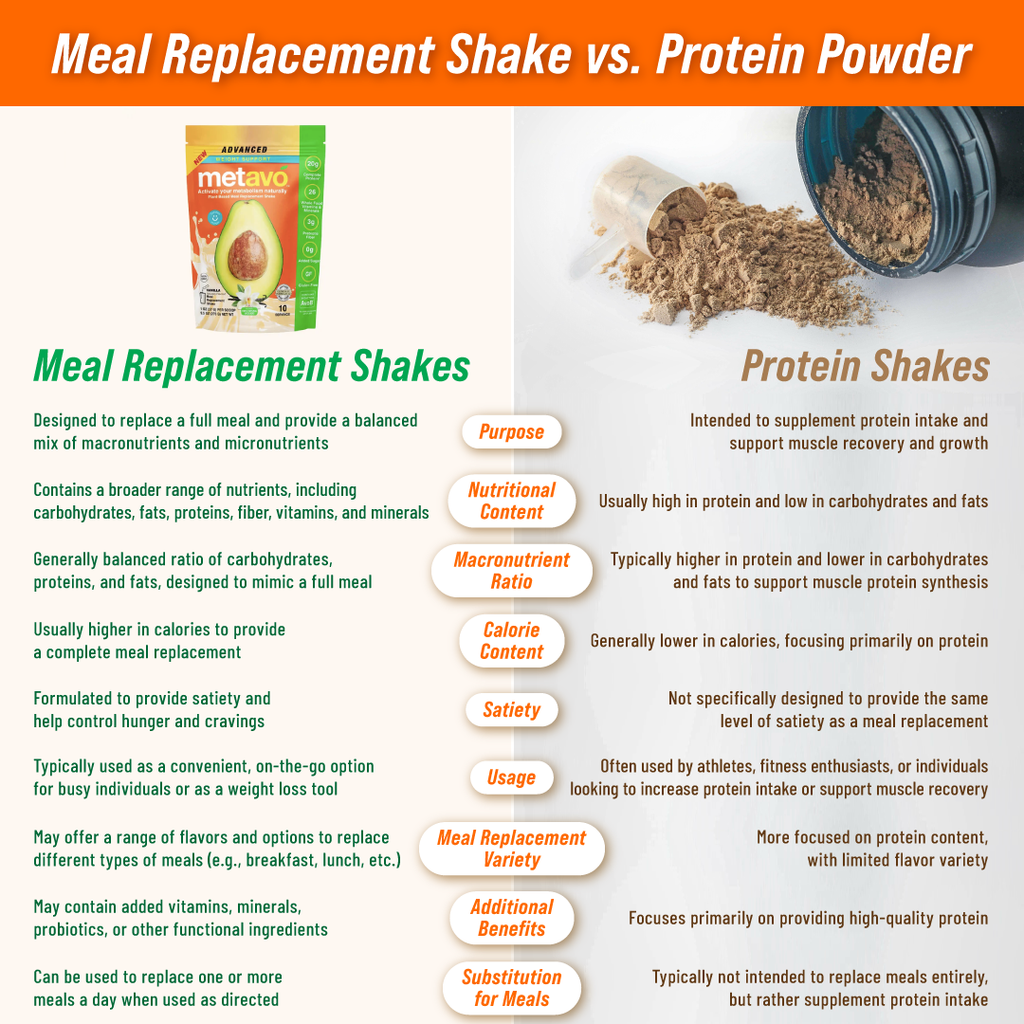
Nutritional Differences
While both meal replacement shakes and protein shakes aim to provide essential nutrients, they have distinct nutritional compositions. Meal replacement shakes are typically more comprehensive, containing a balanced mix of macronutrients like proteins, carbohydrates, and fats, alongside vitamins and minerals. On the other hand, protein shakes focus primarily on protein content and have significantly lower amounts of other macro and micro-nutrients.
Carbohydrates in meal replacement shakes contribute to sustained energy levels, while protein supports muscle growth and repair. Healthy fats in meal replacement shakes provide satiety and essential fatty acids. Protein shakes prioritize protein content, aiming to deliver a concentrated source of this crucial macronutrient for muscle recovery and growth.
Meal replacement shakes often contain added vitamins, minerals, and other nutrients to provide a more complete meal replacement option. These added nutrients can help fill in any nutritional gaps and support overall health and wellbeing.
When to use a meal replacement shake vs. a protein shake
Meal replacement shakes are best utilized as a substitute for a whole meal, providing a balanced nutritional profile. They are ideal for those seeking weight loss, improved convenience, and those tracking their daily caloric intake to either meet their calorie deficit/weight loss goals or looking to boost their diet with specific macro and micronutrients . On the other hand, protein shakes are most effective when consumed before or after workouts to support muscle recovery and growth. You can also use protein shake as a snack between meals to increase protein intake.
Pre and post-workout with protein shakes
Consuming a protein shake before a workout can fuel your muscles and provide a readily available source of amino acids during exercise. Post-workout, a protein shake helps jumpstart muscle recovery and enhances muscle synthesis.
Replacing a meal with a meal replacement shake for weight loss or convenience
Meal replacement shakes can be used as a temporary substitution for a meal, particularly for individuals aiming to lose weight or those who need a convenient option while on the go. It is important to note that meal replacement shakes should not replace all meals in a day, as whole foods offer a wider range of nutrients.
Pros and Cons of meal replacement shakes
Meal replacement shakes provide a convenient and controlled portion of nutrients, making them suitable for individuals on the go or those seeking weight loss. However, relying solely on meal replacement shakes may lead to a lack of dietary variety and potentially missing out on certain nutrients found in whole foods.
Pros and Cons of protein shakes:
Protein shakes offer a quick and easy way to increase protein intake, promote muscle growth, and aid in recovery. However, it's important to remember that they are a supplement and should not replace a well-balanced diet containing whole food sources of protein.
Choosing the Right Shake for Your Goals:
Weight Loss vs. Muscle Gain
Consider your specific goals when choosing between a meal replacement shake and a protein shake. If it's weight loss goals, meal replacement shakes can help with portion control. For muscle gain and maintenance, protein shakes can supplement your protein intake. For general nutrition, a balanced diet with whole foods should be the foundation, with shakes used to supplement when needed.
Consulting a healthcare professional or registered dietitian for guidance:
It's always a good idea to consult a healthcare professional or registered dietitian before incorporating meal replacement shakes or protein shakes into your diet. They can provide personalized guidance based on your unique needs and help ensure you are making the right choices for your health.
Can I Substitute Protein Shake with a Meal Replacement Shake?
Using a meal replacement shake instead of a protein shake can be beneficial for individuals seeking to both increase protein intake and manage weight loss goals. For instance, Metavo Advanced Weight Support Meal Replacement shakes, when prepared as per directions with 250 mL of 2% milk, can deliver a full 20 grams of complete protein along with healthy fats, carbohydrates and prebiotic fiber leading to better satiety and value for money than a regular protein shake. However, a meal replacement shake may not contain enough additional protein an individual focused on primarily building muscle may require.
Bottom Line
Meal replacement shakes and protein shakes both have their unique benefits and purposes. Meal replacement shakes offer a balanced nutritional profile and convenience, making them suitable for those seeking weight loss or a quick meal replacement. They can also be used to increase protein intake and help with muscle recovery.
Protein shakes focus primarily on protein content and are beneficial for muscle growth and recovery solely. It's important to consider your specific goals, protein requirements, dietary preferences. Consult professionals for guidance to make an informed decision.
Ultimately, the foundation of a healthy diet should consist of whole foods, and shakes should be used as supplements when necessary. Remember, balanced nutrition and individual goals should always be the priority. Do your research, consult professionals, and find the right shake to support your journey to better health.
How Metavo Can Help
Metavo Advanced Replacement Meal Shake dubbed as "The Perfect Metabolic Meal" is packed with the wholesome goodness of avocados and boasts 20 grams of complete protein, 26 whole foods vitamins and minerals which supports gut health and increased satiety. Metavo Advanced Weight Support Meal Replacement Shakes do not contain added sugars, have a lot of fruits & vegetables including natural avocados with AvoB™, plant-based complete protein, and other superfood ingredients.

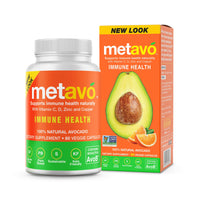
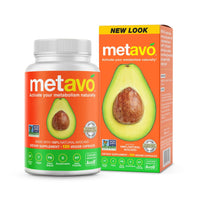
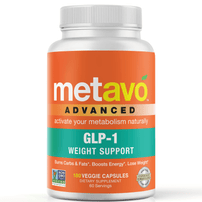
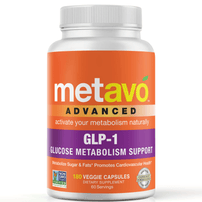
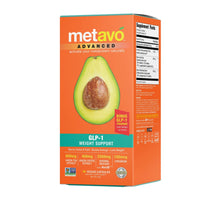
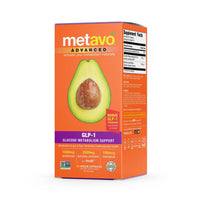
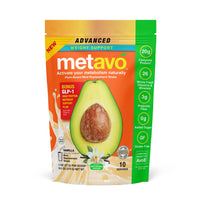
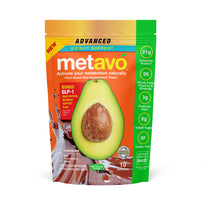
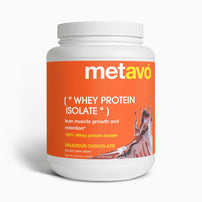
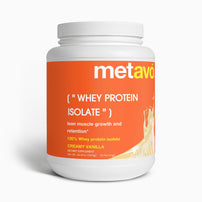
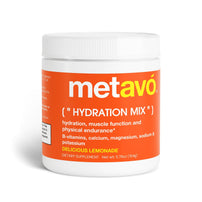
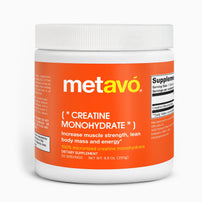
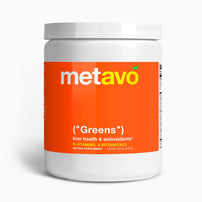
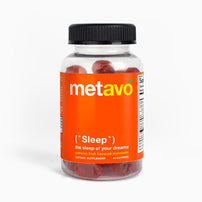
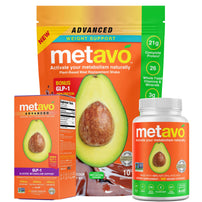
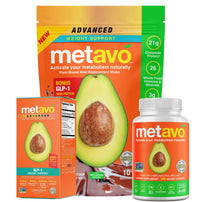
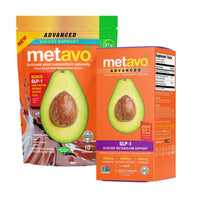
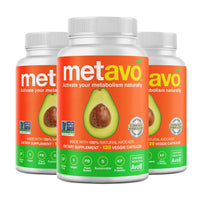




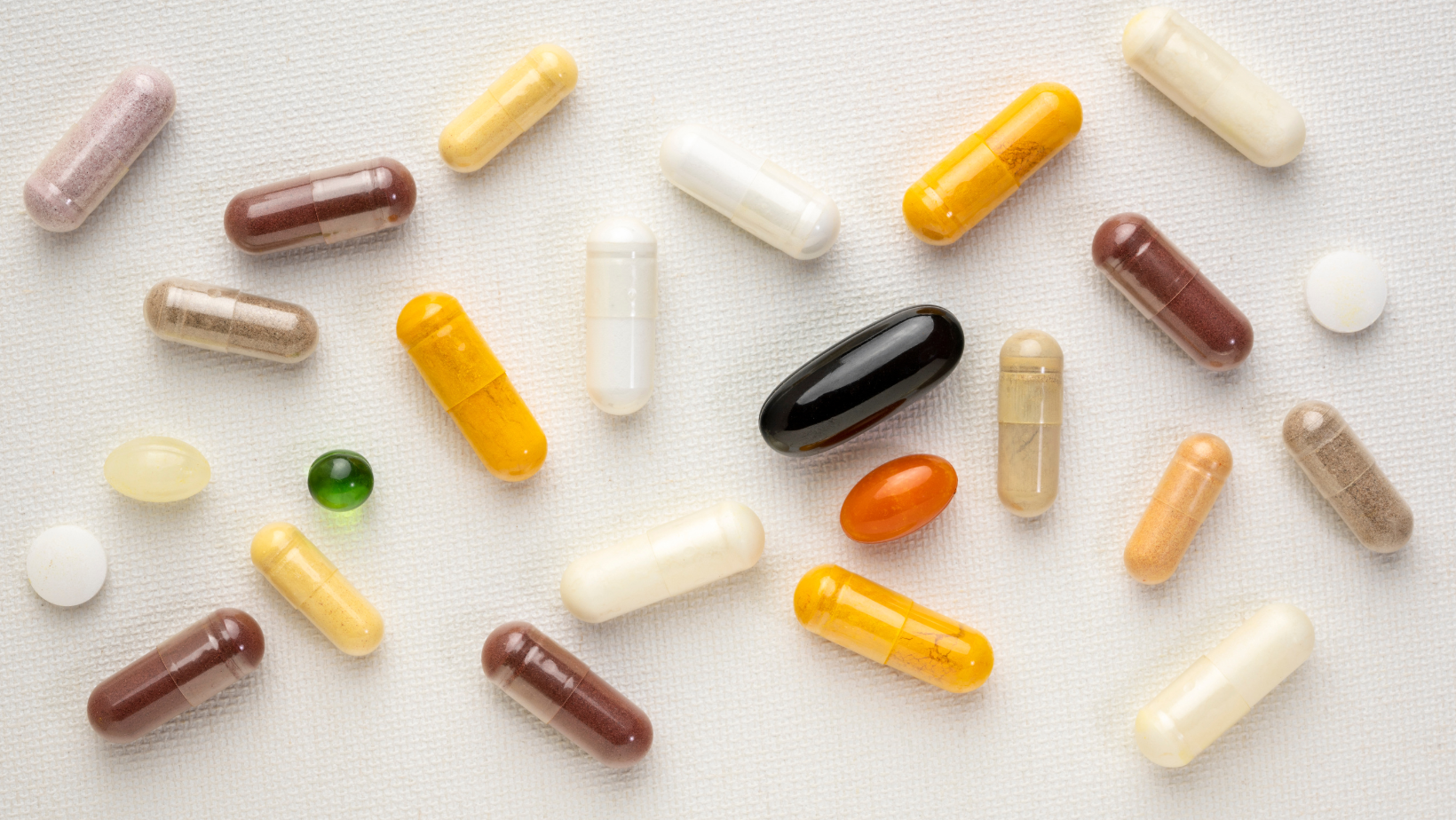

Leave a comment
This site is protected by hCaptcha and the hCaptcha Privacy Policy and Terms of Service apply.